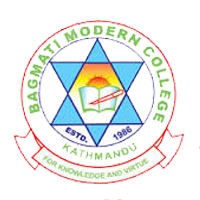Overview
Bachelor of Business Studies (BBS) at Global College of Management (GCM), Kathmandu
Bachelor of Business Studies (BBS) at Global College of Management (GCM), Mid-Baneshwor, Kathmandu, follows Tribhuvan University’s framework and sets a steady route into accounting, finance, marketing, and organisational management.
You study in English on a campus that values punctuality, clear records, and careful analysis. The program spans four academic years and builds habits you can carry into entry-level roles and postgraduate study.

Introduction
The BBS course at GCM brings together accounting, economics, business law, quantitative methods, and management subjects in a balanced sequence. You move from principles in the early semesters to application in the later semesters. Classes use Nepali and global cases so ideas connect to real decisions—pricing, basic costing, inventory checks, cash planning, and short policy notes.
You learn to read financial statements, write short business reports, and present findings in a way non-specialists can follow. Group work is routine. Every student is expected to share responsibilities, meet deadlines, and document sources. This approach builds professional conduct from the first term.
Highlights
-
Affiliation: Tribhuvan University (TU)
-
Medium of Instruction: English
-
Location: Mid-Baneshwor, Kathmandu
-
Duration: Four academic years
-
Study Rhythm: Lectures, seminars, case discussions, project tasks, and periodic presentations
-
Learning Support: Library, computer labs, simple research guidance, and remedial sessions on request
-
Progression: Pathways to MBS and other postgraduate programs at recognized universities
Curriculum Details
GCM follows the TU BBS structure and publishes semester plans so you can track topics and assessment windows.
Core Areas across the program
-
Financial and cost accounting
-
Principles of management and organisational behaviour
-
Business economics (micro and macro)
-
Marketing concepts and decisions
-
Finance basics, working capital, and time-value questions
-
Business law and tax fundamentals (as per course scope)
-
Quantitative techniques and statistics
-
Entrepreneurship and business environment
Early semesters focus on principles: double-entry basics, demand–supply, time value of money, summary measures in statistics, and the language of management.
Middle semesters shift to application: cost sheets, CVP analysis, product and pricing decisions, organisational structure, and short research assignments.
Final semesters combine threads: financial statement analysis, basic budgeting, operations overview, HR topics, and small projects linking strategy notes with numbers.
Classroom practice
-
Worked problems on ledgers, trial balances, cash flows, and simple budgets
-
Short memos that summarise case facts and options
-
Reading tasks drawn from policy notes and industry news
-
Spreadsheet exercises for ratio analysis and charts
-
Group presentations with clear slide limits and time control
Objectives
-
Build a solid base in accounting, economics, management, marketing, and quantitative reasoning.
-
Encourage clean documentation, numerical accuracy, and clear writing.
-
Develop steady teamwork habits—role clarity, version control, and meeting notes.
-
Prepare you for entry-level roles and postgraduate admissions where logic and evidence matter.
-
Reinforce ethical conduct and respect for laws and institutional rules.
Scope
BBS graduates follow three broad routes:
-
Employment: Accounts support, junior finance roles, sales and channel support, operations coordination, store/inventory, and administrative roles in firms that value reliability and careful records.
-
Further Study: MBS at TU, or other master-level programs in management and related areas; professional tracks such as CA/ACCA/CMA (as per their independent rules).
-
Enterprise Exposure: Small business initiatives, internships in family businesses, and campus projects that help you practise documentation and basic controls.
Learning Outcomes
A diligent student completing BBS at GCM should be able to:
-
Prepare journals, ledgers, trial balances, and basic financial statements; compile straightforward cash budgets.
-
Interpret ratios, trend lines, and working capital movements; present insights in short, plain notes.
-
Explain demand shifts, inflation, and policy tools in clear sentences supported by examples.
-
Draft business emails, memos, and 2–4 page reports with headings, figures, and references.
-
Build simple spreadsheets, use formulas for summaries, and create readable charts.
-
Work in project teams with shared folders, file naming rules, and update logs.
-
Present a 7–10 minute talk on a case or data sheet, staying within time and slide limits.
-
Reflect on ethical questions in pricing, reporting, and fair conduct at the workplace.
Skill Development Modules
GCM adds targeted skill blocks alongside TU coursework.
Accounting Accuracy
-
Ledger posting drills and suspense account clean-ups
-
Error spotting, bank reconciliation, and schedule preparation
Quantitative Habits
-
Time value, annuity questions, and NPV/IRR outlines (within course scope)
-
Sampling basics, index numbers, correlation, and simple forecasts
Communication
-
Notes and minutes formatted for quick reading
-
Report structures with headings, tables, and figure captions
Digital Workflows
-
Folder organisation, file naming, and version tracking
-
Spreadsheet templates for ratio summaries and mini dashboards
Professional Conduct
-
Attendance, deadlines, and exam discipline
-
Short reflections on fairness, confidentiality, and conflict of interest
Teaching Methodology
Teaching focuses on clarity first, then practice.
-
Concept Blocks: Short explanations, followed by worked examples that mirror past exam styles.
-
Caselets: One-page scenarios on pricing, credit policy, or staffing that require a short memo.
-
Practice Hours: Timed sets with immediate feedback; weak areas flagged for revision.
-
Projects: Small groups complete a scoped task—data collection, analysis, and a short presentation.
-
Seminars: Topic talks that link current business notes with course ideas.
-
Remedial Support: Focus sessions for topics students often find hard—ratio logic, cash flow format, or variance basics.
-
Mock Exams: Trial papers under exam timing to build pacing and stamina.
Unit plans and assessment dates are shared through class groups and notice boards. You always know what the next two weeks look like.
Admission Requirements
GCM follows a transparent process for BBS entry.
-
Eligibility: PCL or +2 in Business/Commerce or equivalent from a recognized board, with English studied as a major/compulsory subject.
-
Entrance Test (CAT): Questions on language, mathematics, business knowledge, and analytical ability.
-
Interview: Short interaction on study habits, interest in the stream, and readiness for steady work.
-
Selection: Combined review of entrance score, interview, and +2 academic record.
Preparation Tips
-
Revise arithmetic, percentages, ratio-proportion, and basic statistics.
-
Practise reading a one-page article and writing a five-line summary.
-
Rehearse a two-minute introduction that lists your study history and goals.
-
File transcripts, photographs, and ID neatly to avoid last-minute errors.
Admission dates follow the TU academic cycle. You should confirm the current schedule and the required documents at the college office before submission.
Career Opportunities
BBS builds the ground skills employers expect in junior roles.
-
Accounts and Finance: Voucher checking, ledgers, bank reconciliation, petty cash reviews, and basic reports.
-
Sales and Marketing Support: Data cleaning, stock reports, simple dashboards, and event coordination.
-
Operations and Admin: Inventory counts, store records, documentation, and vendor follow-ups.
-
Further Study: MBS and sector-specific master’s programs; professional qualifications as per their rules.
Managers often value punctuality, error-free records, and clear notes. The four-year rhythm helps you turn these into daily habits.
Scholarships and Financial Aid
GCM offers merit- and criteria-based support for BBS in line with college rules.
-
Board Gold Medalist (+2/NEB/PCL/TU): Full scholarship
-
Highest Scorer (Distinction) among enrolled at GCM: 100% Admission Fee off & 60% Tuition Fee off
-
Marks 73%–75% (+2/NEB/PCL/TU): 50% Admission Fee off & 40% Tuition Fee off
-
Marks 70%–73%: 50% Admission Fee off & 25% Tuition Fee off
-
Marks 65%–70%: 50% Admission Fee off & 10% Tuition Fee off
-
Marks 60%–65%: 50% Admission Fee off
-
Remote/Financially Disadvantaged (1 seat), Dalit/Marginalized (1 seat): 75% Admission Fee off & 50% Tuition Fee off
-
Board Exam 1st at GCM: 100% Tuition Fee off (1 year)
-
Board Exam 2nd at GCM: 50% Tuition Fee off (1 year)
-
Board Exam 3rd at GCM: 25% Tuition Fee off (1 year)
-
Term Exam 1st/2nd/3rd at GCM: 60%/40%/20% Tuition Fee off for three months
-
GCM Excellence Award (average of BBS I–IV highest): Trophy with cash prize
Applicants should check the current categories and deadlines at the office and keep documents ready. Clear records speed up decisions.
Why Choose This Course?
Students who prefer clear targets and regular practice find this program steady and manageable.
-
Structured Progress: Semesters move from concepts to application without abrupt jumps.
-
Actionable Feedback: Marked scripts and rubrics show the next areas to fix.
-
Daily Skills: Accounting entries, ratio tables, memos, and short talks become routine.
-
Support Windows: Remedial sessions and library guidance help close gaps.
-
Location and Tools: Mid-Baneshwor campus, labs, and reading spaces support quiet study.
Conclusion
BBS at GCM offers a clear path into the management field under TU. You gain working knowledge of accounting, economics, finance, marketing, and quantitative methods. You also practise teamwork, documentation, and presentation. Students who plan weekly, revise on time, and keep tidy records do well here and move on to meaningful roles or postgraduate study with confidence.
FAQ
What is the affiliation for BBS at GCM?
BBS at GCM runs under Tribhuvan University.
What is the entry requirement?
PCL or +2 in Business/Commerce or equivalent, with English as a major/compulsory subject; CAT entrance test and interview; selection based on the combined score.
How long is the program?
Four academic years with semester-wise or year-wise planning as per TU’s structure.
What are typical subjects?
Accounting, economics, management, marketing, finance basics, business law, quantitative techniques, entrepreneurship, and business environment.
Are scholarships available?
Yes. Merit- and criteria-based categories exist as listed above. Applicants should confirm current details and deadlines at the college office.
What can I do after BBS?
Apply for MBS or other master-level programs, sit for professional pathways as per their rules, or take junior roles in accounts, finance, sales support, operations, or administration.
Is the medium of instruction English?
Yes. Teaching, assessments, and most submissions are in English, except where a course requires otherwise.























